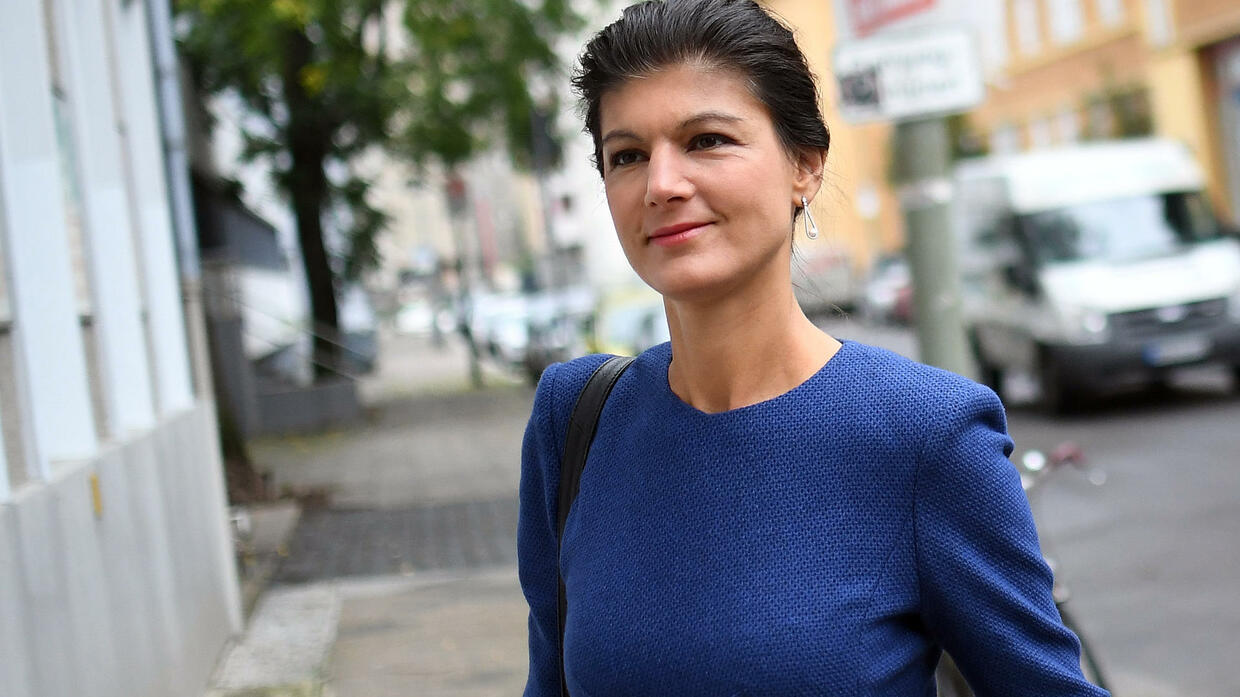Germany’s Left-Wing BSW Challenges Pro-Ukraine Consensus with Growing Influence

Germany’s recently established leftist-populist party, the Sahra Wagenknecht Alliance (BSW), is challenging the country’s strong support for Ukraine. As the BSW rises in three eastern states—Brandenburg, Thuringia, and Saxony—it demands that any regional coalition partners advocate for an end to military support for Ukraine. This anti-military stance risks eroding Germany’s established pro-Ukraine consensus, even as the country ranks as Kyiv’s second-largest military backer against Russia. Moreover, these developments are intensifying friction within Chancellor Olaf Scholz’s three-party federal coalition, already under strain in Berlin.
Formed in January, the BSW is Germany’s only anti-war party, apart from the far-right Alternative for Germany (AfD), which remains isolated as mainstream parties refuse to collaborate with it. Now a key player in the eastern states after its strong performance in recent elections, the BSW is positioning itself as an indispensable partner for coalition-building, with party leader Sahra Wagenknecht insisting that any alliances endorse her party’s anti-war policies.
This stance recently led to controversy when the Social Democratic Party (SPD) in Brandenburg, Scholz’s own party, endorsed a joint statement with the BSW, asserting that “the war will not be ended by further weapons deliveries.” The statement, which also criticized the potential deployment of U.S. long-range missiles in Germany, faced backlash in Berlin and within the SPD itself. Agnieszka Brugger, a prominent Green Party lawmaker, called the SPD’s collaboration “cynical and populist,” warning that ending support for Ukraine jeopardizes the security of Germany and its allies.
While state governments cannot directly influence foreign policy, BSW’s stance arrives amid shifting public opinion, with some polls showing cooling support for Ukraine, especially as Russia advances militarily and U.S. policy on Ukraine hinges on the November 5 election.
This shift has also emboldened the SPD’s Russophile faction, evident in the recent promotion of Matthias Miersch, who has been seen as rehabilitating Gerhard Schröder, the former SPD chancellor with ties to Russian energy firm Gazprom and a personal relationship with Vladimir Putin.
A Party in Flux
BSW’s blend of economically paternalistic policies with an anti-migration stance has resonated with voters, particularly in the eastern states, where it secured double-digit percentages in recent elections. Polls suggest it could attract 7-9% of the vote in the federal election next year. This trajectory has transformed Wagenknecht, a former Leninist and long-standing cult figure, into a regular on talk shows. However, internal challenges are surfacing as local BSW leaders, particularly in Thuringia, grapple with Wagenknecht’s strict anti-war stance.
In Thuringia, Katja Wolf, BSW’s regional leader and a popular former mayor of Eisenach, prioritized coalition-building over rigid anti-war statements in talks with SPD and conservative partners. Her focus on stability led her to agree to a vague preamble about peace rather than committing to BSW’s anti-war messaging, drawing criticism from Wagenknecht, who called for a “recognizable BSW signature” in the coalition.
Political scientist Oliver Lembcke of the University of Bochum highlights the fragility of Wagenknecht’s political ventures, noting that a similar movement, “Rise Up,” she launched in 2018, dissolved within a year. As BSW gains national traction, some analysts question whether the party can withstand internal divisions and maintain cohesion through to the next federal election.




















